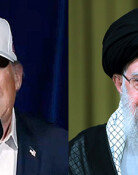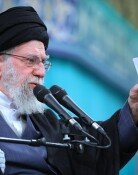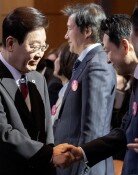Why North Korea Changed Its Position on Nuclear Weapons Disclosure
Why North Korea Changed Its Position on Nuclear Weapons Disclosure
Posted February. 10, 2005 22:34,
We manufactured nuclear weapons for self-protection
North Korea has admitted the manufacture of nuclear weapons through a Foreign Ministry statement on February 10, which is attracting much interest as to whether North Korea really possesses nuclear weapons and why the North Korean government came to declare this statement.
It has been consistently speculated by the outside world that North Korea possesses nuclear weapons, but North Korea maintained its NCND (neither confirm nor deny) position on the matter.
So far, the North Korean government has indirectly mentioned its possession of nuclear arms, but this is the first time that North Korea has directly proclaimed it manufactured nuclear arms through a statement by the Foreign Ministry.
Accordingly, if North Koreas possession of nuclear arms is more than a critical issue, some say that the framework and content of the six-party talks should be drastically changed.
Because except for North Korea, South Korea, the U.S., Japan, China and Russia have so far continued their talks on the grounds that North Korea may possesses nuclear bombs but that fundamentally, there is a small possibility of North Koreas possession of nuclear weapons.
This means that the involved parties should promptly obtain information on how volatile the weapons North Korea possesses are, how many they have, and when they were acquired.
Professor Roh Jung-sun of Yonsei University said that the recent statement by a spokesman of the Foreign Office of North Korea is of great significance, although North Korean Vice Foreign Minister, Choi Soo Hyn, noted earlier that North Korea had proceeded with weaponization of nuclear arms at the U.N. General Assembly last September.
Professor Roh commented, saying, U.S. intelligence agents are assuming that the North Korean government already possesses about three to five nuclear bombs.
A former policy planning director at the US State Department, Mitchell B Reiss, claimed in the March/April edition of Foreign Affairs magazine that North Korea has entered a stage of producing enriched uranium that holds similar explosive power to nuclear weapons.
Reiss said in an article titled The scene is secured, that in the second half of 2002, the Bush administration acquired information in which North Korea obtained equipment with which it could produce enriched uranium for two or more nuclear weapons every year.
Yong-Gwan Jung yongari@donga.com







